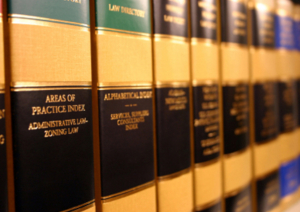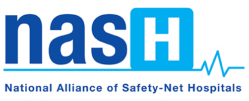The revised public charge regulation that will make it more difficult for some immigrants to come to the U.S. will be implemented after the Supreme Court lifted preliminary injunctions issued by lower courts that delayed the regulation’s implementation.
 Under revisions of the public charge regulation introduced last year, individuals seeking entry into the U.S. and green cards who do not appear to be financially independent or have employment commitments can be denied entry if they will be dependent on means-tested public aid programs such as Medicaid or food stamps or even if they, or members of their family, appear likely to become dependent on such aid in the near future.
Under revisions of the public charge regulation introduced last year, individuals seeking entry into the U.S. and green cards who do not appear to be financially independent or have employment commitments can be denied entry if they will be dependent on means-tested public aid programs such as Medicaid or food stamps or even if they, or members of their family, appear likely to become dependent on such aid in the near future.
A number of judges throughout the country blocked the administration’s implementation of revisions of the public charge rule. The Supreme Court’s action only lifts those injunction; it does not address the constitutionality of the regulation, leaving that matter to continue to be addressed by lower courts for now.
The challenge posed to health care providers by the updated public charge regulation is as much a matter of perception as reality: individuals already legally in the U.S. who are not subject to the regulation have withdrawn from Medicaid out of fear of deportation while others who also are in the country legally and qualify for Medicaid are choosing not to apply for benefits for the same reason. This, in turn, may leave some providers with more uncompensated care instead of Medicaid reimbursement for the care they provide to some of their patients.
The National Alliance of Safety-Net Hospitals has conveyed its opposition to the public charge regulation to both Congress and the administration. In a message to Congress, NASH wrote that “The new public charge regulation threatens the health of families and communities and threatens the ability of private safety-net hospitals to serve those families and those communities.” In response to the proposed changes in the regulation, NASH wrote in a formal comment letter on behalf of private safety-net hospitals that it
 …believes the proposed regulation could have a chilling effect on the willingness of many legal citizens and legal non-citizens to seek out government health care programs for which they legally qualify. This could lead to millions of low-income legal citizens and legal non-citizens choosing not to seek the care to which they are entitled by law and ignoring serious illnesses and injuries until they become a crisis. When such individuals have no choice but to turn to hospital emergency departments in search of care – something hospital emergency departments are required by law to provide regardless of a patient’s ability to pay – this could overwhelm those facilities and would do so to the detriment of other patients while also producing a surge of uncompensated care, especially for private safety-net hospitals. That, in turn, could jeopardize the jobs of thousands who work in those hospitals and the economies of the communities in which those hospitals are located. It could also jeopardize access to care for residents of these same communities – including ordinary people who receive their health care coverage from private insurers and Medicare.
…believes the proposed regulation could have a chilling effect on the willingness of many legal citizens and legal non-citizens to seek out government health care programs for which they legally qualify. This could lead to millions of low-income legal citizens and legal non-citizens choosing not to seek the care to which they are entitled by law and ignoring serious illnesses and injuries until they become a crisis. When such individuals have no choice but to turn to hospital emergency departments in search of care – something hospital emergency departments are required by law to provide regardless of a patient’s ability to pay – this could overwhelm those facilities and would do so to the detriment of other patients while also producing a surge of uncompensated care, especially for private safety-net hospitals. That, in turn, could jeopardize the jobs of thousands who work in those hospitals and the economies of the communities in which those hospitals are located. It could also jeopardize access to care for residents of these same communities – including ordinary people who receive their health care coverage from private insurers and Medicare.
See NASH’s entire comment letter here.
Learn more about the Supreme Court’s decision and how it affects implementation of the public charge regulation in the New York Times article “Supreme Court Allows Trump’s Wealth Test for Green Cards.”

